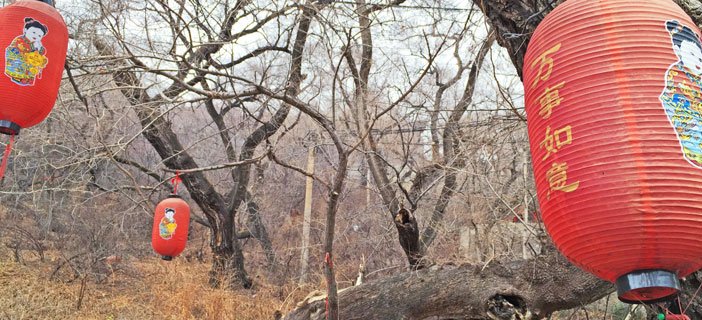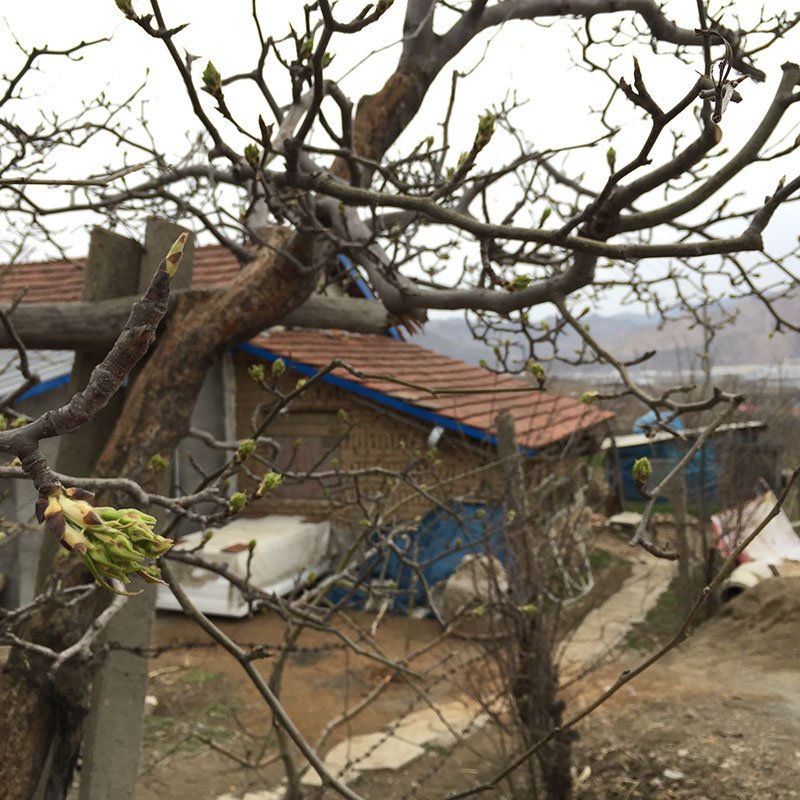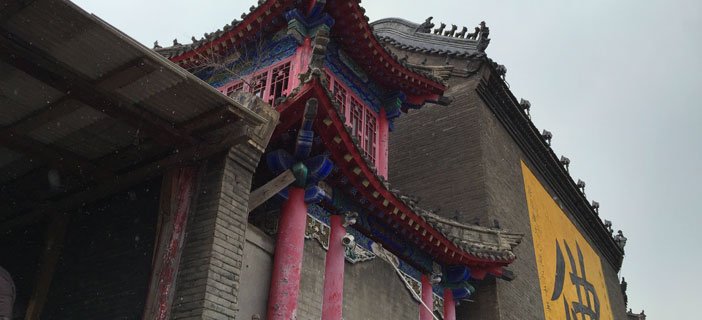jingkids
jingkids international
Celebrating The Arrival Of Spring, One Chinese Superstition A Time
To me, celebrating the arrival of spring sounds like one of the best reasons to celebrate.
25/01/2017

Ruth Silbermayr
Author
Spring Festival

To me, celebrating the arrival of spring sounds like one of the best reasons to celebrate. This is particularly true up here in my husband’s hometown in Northeast China, a most barren land in winter. I vividly remember when my brother visited us in May 2015. We drove all the way to the North Korean border near Ji’an, a mere 5-hour drive through plains and mountain roads. Driving down a road next to the Yalu River, we could see North Koreans on the other side of the bank, some washing clothes, some taking a bath, others walking home. The trees had barely grown new leaves yet. Snow had melted, but it was still cold and the pictures we took all looked grey.

Spring in Northeast China
Spring in Northeast China is short and starts late. I still remember the excitement I felt when my husband exclaimed that with the celebration of Spring Festival, winter was now officially over and spring about to start. I imagined changing into fewer layers in the morning, spending the days outside, and taking my son for walks, marveling at the revival of nature. Only later did I realize that for my Northeastern Chinese husband, the beginning of spring does not have the same connotations it does for me. To him, the start of spring means that the coldest three weeks of the year are over. His version of the start of spring is slower and more subtle than what I have grown up knowing of the Austrian springs. It might mean that the earth starts to defrost, not necessarily that the trees will start carrying green leaves and blossoms. We’ll usually have to wear winter clothes for a few more months.

Celebrating Spring Festival with my in-laws
I still do like the connotation of spring being just around the corner. Tomorrow, I’ll try to coax my toddler son into wearing layer upon layer of winter clothing and will bundle up my 4-month-old baby to do the unheard of – take him out in the midst of winter. Together we will travel to visit my in-laws. Since we have two small children we don’t have a massive celebration. When visiting relatives we don’t partake in drinking baijiu (白酒) or watching the men smoke and play Mahjongg. We’ll stuff jiaozi and hang up New Year’s decorations instead and will enjoy a sumptuous New Year’s dinner. And that’s about it. I see myself lying in bed early, trying to comfort my sons as we listen to the boisterous echo of firecrackers exploding on the cement ground just outside the flat, a warning sign to the Nian beast to never put its feet on this earth again. We’ll probably also have our air purifier on full blast to counteract the pollution caused by the fireworks. My father-in-law has already cut my toddler son’s hair. People here say you can’t cut hair in the month after Chinese New Year, or a maternal uncle is going to die. Since I have four brothers, we don’t want to take any chances.

Wearing Red in the Year of the Rooster
This spring festival is special in that it ushers in my husband’s benmingnian (本命年), his zodiac year. My husband was born in the year of the rooster. He’ll have to wear red to ward off bad luck every single day of the upcoming year. Red underwear, red socks, or some other red clothes are all supposed to help ward off bad luck incurred upon people in their zodiac year by taisui (太岁), the God of Age.
Being married to China and having children whose cultural heritage is partly Chinese does not mean I need to believe in every single Feng Shui principle or Taoist tradition, but it does mean, in the eyes of Chinese, that I need to respect local traditions and superstitions. I try to do that in most cases – as long as they are not harmful.
Do you believe in Chinese superstitions?
I’m not that much of a online reader to be honest but your blogs really nice, keep it up! I’ll go ahead and bookmark your website to come back later on. Many thanks
Thanks!
Fantastic website you have here but I was curious if you knew of any user discussion forums that cover the same topics discussed here? I’d really like to be a part of group where I can get comments from other experienced individuals that share the same interest. If you have any recommendations, please let me know. Cheers!
Thanks! I’m not part of any user discussion forums and therefore can’t recommend any.
Excellent blog! Do you have any tips and hints for aspiring writers? I’m hoping to start my own blog soon but I’m a little lost on everything. Would you suggest starting with a free platform like WordPress or go for a paid option? There are so many options out there that I’m totally confused .. Any ideas? Kudos!
Thanks, I would start with the free option when starting out.
Howdy! I know this is kinda off topic however , I’d figured I’d ask. Would you be interested in trading links or maybe guest writing a blog article or vice-versa? My blog discusses a lot of the same subjects as yours and I believe we could greatly benefit from each other. If you’re interested feel free to send me an e-mail. I look forward to hearing from you! Awesome blog by the way!
Hi! Yes, you can contact me via email if you’d like to do a guest post.